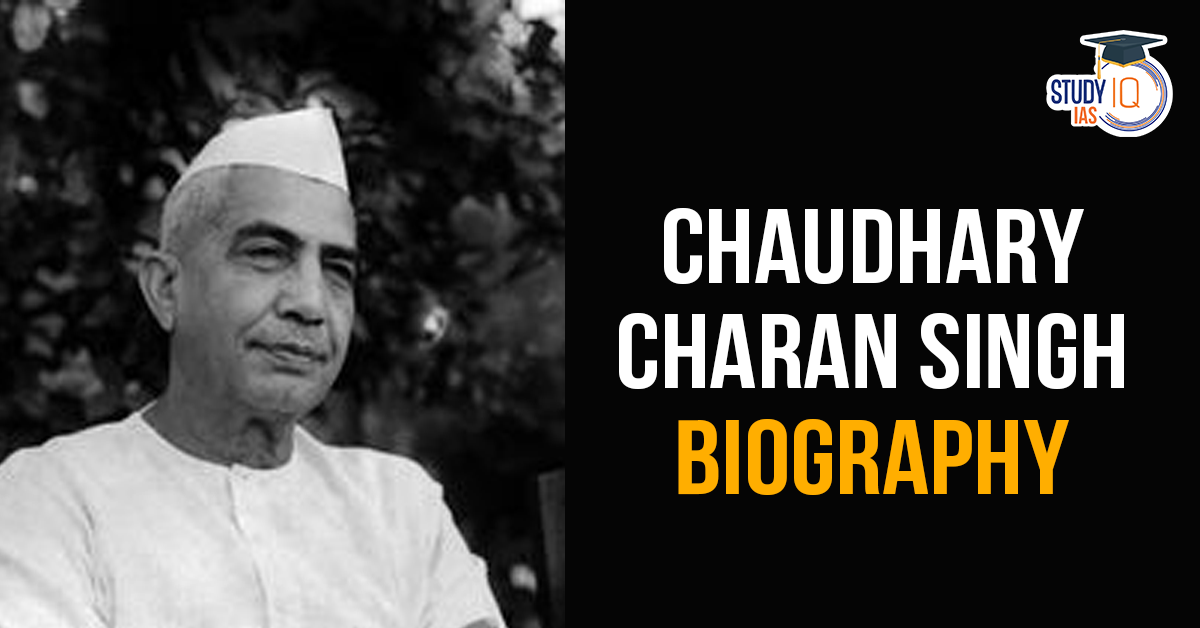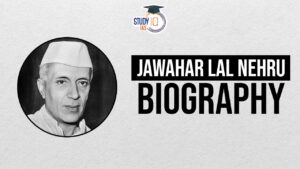Table of Contents
Chaudhary Charan Singh is remembered as one of India’s most influential leaders who tirelessly worked for the welfare of farmers and the rural population. Born in a humble peasant family, Singh rose through the political ranks to become the 5th Prime Minister of India, leaving a significant imprint on India’s agricultural policies and land reforms.
This article provides a comprehensive biography of Chaudhary Charan Singh, covering his early life, political journey, landmark reforms, and legacy.
Chaudhary Charan Singh Death Anniversary
Chaudhary Charan Singh Biography
Chaudhary Charan Singh was born on December 23, 1902, in Noorpur, a small village in the Hapur district of present-day Uttar Pradesh. Coming from a modest peasant family, he experienced the hardships of rural life firsthand. His early life was characterized by simplicity and a strong work ethic.
Charan Singh excelled academically, earning a degree in law from Agra University. This academic background laid the foundation for his career in public service and his dedication to justice and equality.
Chaudhary Charan Singh in Politics
Charan Singh began his political career in 1937 when he was elected to the Legislative Assembly of the United Provinces. He was deeply influenced by Mahatma Gandhi’s principles of non-violence and self-reliance. Over time, he became an ardent advocate for agrarian reform and championed the cause of farmers.
Charan Singh: Key Contributions to Indian Agriculture
- Land Reforms: Chaudhary Charan Singh played a pivotal role in the implementation of land reform policies. He was instrumental in drafting the Zamindari Abolition Act, which aimed to eliminate the exploitative Zamindari system and distribute land to tenant farmers.
- Pro-Farmer Policies: As a leader, Charan Singh prioritized the welfare of farmers. He introduced several measures to ensure equitable land distribution, access to credit, and fair pricing for agricultural produce.
- Rural Development: His focus on rural infrastructure, irrigation, and agricultural technology modernization significantly improved the living standards of rural communities.
Charan Singh’s Political Career
Charan Singh’s political journey was marked by his unwavering commitment to farmer-centric policies:
- Chief Minister of Uttar Pradesh: Charan Singh served as the Chief Minister of Uttar Pradesh twice (1967-68 and 1970). During his tenure, he implemented progressive reforms, including the consolidation of land holdings and the abolition of bonded labor.
- Deputy Prime Minister of India: In 1979, he served as the Deputy Prime Minister, focusing on policies that uplifted rural India and strengthened the agricultural sector.
- Prime Minister of India: Charan Singh became the fifth Prime Minister of India on July 28, 1979, though his tenure lasted only until January 14, 1980. Despite the brevity of his term, he worked tirelessly to advocate for farmers’ rights and rural empowerment.
Chaudhary Charan Singh’s legacy
Chaudhary Charan Singh’s legacy is celebrated annually on December 23 as Kisan Diwas (National Farmers’ Day) in India. This day honors his lifelong dedication to the welfare of farmers and rural communities.
His vision for self-reliant villages and equitable land distribution continues to inspire policymakers and activists.
Notable Initiatives
- Zamindari Abolition: Pioneered reforms to dismantle the feudal land system.
- Pro-Rural Policies: Advocated for rural credit systems, cooperative farming, and agricultural subsidies.
- Publications: Charan Singh authored several books and essays on agrarian economics, including “India’s Poverty and Its Solution,” reflecting his deep understanding of rural issues.
Personal Life
Chaudhary Charan Singh was married to Gayatri Devi, and the couple had six children. His family played a supportive role in his political endeavors, with his son Ajit Singh later emerging as a political leader.
Death and Commemoration
Chaudhary Charan Singh passed away on May 29, 1987. His contributions to India’s agrarian landscape are commemorated through institutions named after him, such as the Chaudhary Charan Singh University in Meerut and the Chaudhary Charan Singh International Airport in Lucknow.
Conclusion
Chaudhary Charan Singh’s life was a testament to his unwavering commitment to the cause of farmers. His policies and vision for an egalitarian society remain relevant, serving as a guiding light for India’s agrarian reforms. As we celebrate his birth anniversary, it is essential to reflect on his contributions and strive to uphold the values he championed.


 Savitribai Phule Biography, Early Life, ...
Savitribai Phule Biography, Early Life, ...
 Birsa Munda Birth Anniversary 2025: Life...
Birsa Munda Birth Anniversary 2025: Life...
 Jawahar Lal Nehru Biography: Celebrating...
Jawahar Lal Nehru Biography: Celebrating...

























